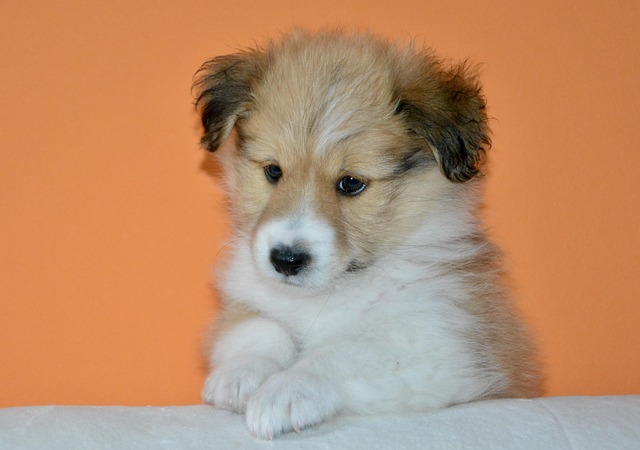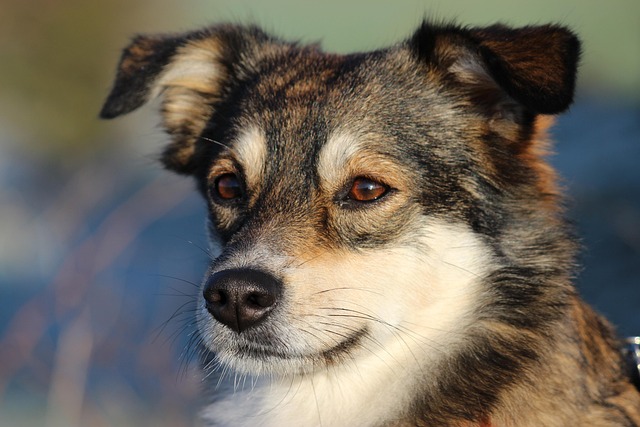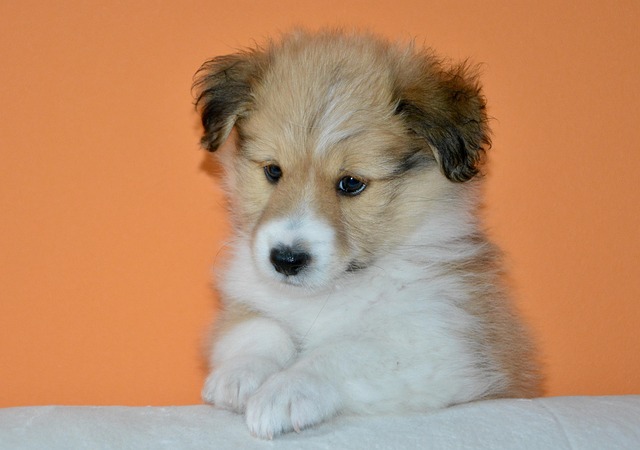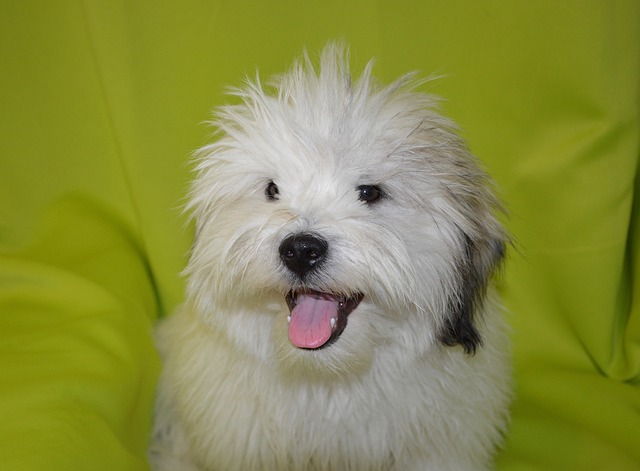
At what age do dogs get food allergies?
When we stroke our fluffy beloved dogs and watch them wagging their tails while enjoying their food, we rarely think that seemingly ordinary food can be an "invisible killer" that harms them.
When you squat down and want to stroke that once fluffy Corgi, your palm gets covered with large amounts of dog hair. When cleaning the floor at home, clumps of hair seem to be endless to clean. The once fluffy and lovely "peach-shaped buttocks" have become sparse and dull. The problem of severe hair loss in Corgis is like a dark cloud hanging over the owner's heart. Corgis are known for their double-layered fur. Moderate hair loss is normal, but excessive hair loss not only affects the appearance but may also be a sign of health problems. In the face of the troubles of our beloved dogs, we need to be guided by professional knowledge and supported by gentle care to find solutions.
From the physiological structure of Corgis, their double-layered fur has evolved to adapt to different climatic environments. The outer coarse coat is used to resist wind and rain and block foreign objects from the outside, while the inner soft undercoat plays a role in keeping warm. In spring and autumn, Corgis will have seasonal molting, shedding their thick winter coat or growing new hair for cold protection. During this period, the amount of hair loss will increase significantly. Under normal circumstances, although there is a large amount of hair loss during seasonal molting, the skin condition of Corgis is healthy, and there will be no abnormal symptoms such as redness and itching. However, when the hair loss of Corgis far exceeds the normal range, and even local hair thinning and skin exposure occur, the owner should pay great attention.
Nutritional imbalance is one of the common reasons for severe hair loss in Corgis. The healthy growth of hair depends on sufficient protein, vitamins, and minerals. As medium-sized dogs, Corgis have relatively high nutritional requirements. If they are fed with poor-quality and nutritionally single dog food for a long time and lack key nutrients such as Omega-3 fatty acids, B vitamins, zinc, and iron, their hair will become fragile and prone to breakage, and the hair loss will be aggravated. For example, a lack of Omega-3 fatty acids will make the hair dry and dull, and the hair follicles will atrophy, resulting in a large amount of hair loss. The lack of B vitamins will affect the skin metabolism and lead to more serious hair loss problems. Some owners, out of love, frequently feed Corgis human food, especially snacks high in salt and oil. These foods will irritate the skin of Corgis, damage the health of the hair follicles, and further deteriorate the hair loss situation.
Skin diseases are also the "culprits" of severe hair loss in Corgis. Infections of fungi, bacteria, and mites can all cause hair loss. Fungal infections, such as common ringworm, will form circular or oval hair loss patches on the skin of Corgis. The hair loss area is accompanied by dandruff, redness, and itching. Corgis will scratch frequently due to discomfort, causing more hair to fall out. Mite infections, such as sarcoptic mites and demodex mites, will cause symptoms such as hair loss, scabbing, and thickening of the skin on the ears, elbows, abdomen, and other parts of Corgis, and in severe cases, even cause systemic hair loss. In addition, allergic dermatitis can also make Corgis suffer. Corgis may be allergic to pollen, dust mites, certain foods, chemical substances, etc. After contacting the allergens, the skin will itch, turn red, and a large amount of hair will fall out during the scratching process. Once, a Corgi was allergic to the material of the newly replaced dog bed. In just a few days, the hair on its abdomen fell out in patches, and the owner felt very distressed when seeing its uncomfortable appearance.

Parasite infections should not be ignored either. External parasites such as fleas and lice will parasitize among the fur of Corgis. By biting and sucking blood, their saliva will trigger an allergic reaction on the skin, causing the Corgi to itch violently. Frequent scratching will cause hair loss. Intestinal parasites such as roundworms and tapeworms will rob the nutrients ingested by Corgis, affect their overall health status, and indirectly lead to fragile and easily falling hair.
In the face of severe hair loss in Corgis, the owner should first adjust the diet structure. Choose nutritionally comprehensive and high-quality dog food to ensure that it contains rich high-quality protein, Omega-3 and Omega-6 fatty acids, vitamins, and minerals. Under the advice of a veterinarian, add foods rich in Omega-3 fatty acids to Corgis, such as deep-sea fish oil and salmon, to help nourish the hair and enhance the health of the hair follicles. Supplement pet-specific vitamin tablets and trace element tablets in an appropriate amount to make up for the possible nutritional gaps. At the same time, stop feeding Corgis human food high in salt and oil to improve the hair loss problem from the root of the diet.
If it is suspected that hair loss is caused by skin diseases or parasite infections, immediately take the Corgi to a pet hospital for professional examination. The veterinarian will accurately determine the cause of the disease through methods such as scraping examination, fungal culture, and blood tests, and then prescribe corresponding treatment plans. If it is a fungal infection, antifungal ointments and lotions may be needed for local treatment, and oral antifungal drugs may be required in severe cases. For mite infections, special deworming drugs are needed, and deworming both internally and externally according to the treatment course. For allergic dermatitis, the allergen should be isolated first, and then antihistamine drugs and corticosteroid drugs can be used under the guidance of a doctor to relieve the symptoms. During the treatment process, the owner should strictly follow the doctor's advice, administer the drugs to the Corgi on time, and do a good job in skin care and environmental hygiene.
Daily care is also crucial for relieving hair loss in Corgis. Use a pet-specific comb every day and comb along the direction of hair growth. This can not only remove the floating hair on the Corgi in time and prevent the hair from spreading at home but also promote blood circulation in the skin, which is beneficial to the growth of new hair. When bathing, use a gentle pet-specific shampoo suitable for the skin of Corgis, and control the bathing frequency. It is appropriate to bathe once every 7 - 10 days in summer and once every 10 - 15 days in winter. Excessive bathing will damage the oil protective layer of the skin and aggravate hair loss. After bathing, dry the hair thoroughly and keep the skin dry to avoid the growth of bacteria and fungi due to moisture.
Severe hair loss in Corgis is not only a manifestation of their physical discomfort but also tugs at the owner's heart. Every fallen hair is like a "distress signal" it sends. As the owner, we need to be patient and careful and accompany it through this difficult period. During the process of adjusting the diet, cooperating with the treatment, and strengthening the care, give it more gentle strokes and comfort. When it cooperates with the treatment, give it delicious snacks as a reward. Watching the fur of the Corgi gradually become thick again, regain its fluffy and lovely appearance, and wag its tail happily and run in the sun, all the efforts will turn into the sweetest rewards. Because in the days of accompanying the Corgi, their health and happiness are our greatest happiness.

When we stroke our fluffy beloved dogs and watch them wagging their tails while enjoying their food, we rarely think that seemingly ordinary food can be an "invisible killer" that harms them.

When the fluffy little dog leaves the warm embrace of its mother dog and starts to face the world independently, its ignorant and dependent eyes make every owner feel affectionate.

In the late night pet hospital, under the incandescent light, you watch your dog struggling to move its body, every step accompanied by a slight tremble,

When our furry friends at home scratch frequently, sneeze incessantly, or show symptoms such as diarrhea and ear inflammation, the hearts of every pet owner are gripped with worry.

When you squat down and want to stroke that once fluffy Corgi, your palm gets covered with large amounts of dog hair.

When the furry little golden fur happily falls into your arms, with a faint odor or soil left behind from playing, bathing it becomes a necessary and challenging task.